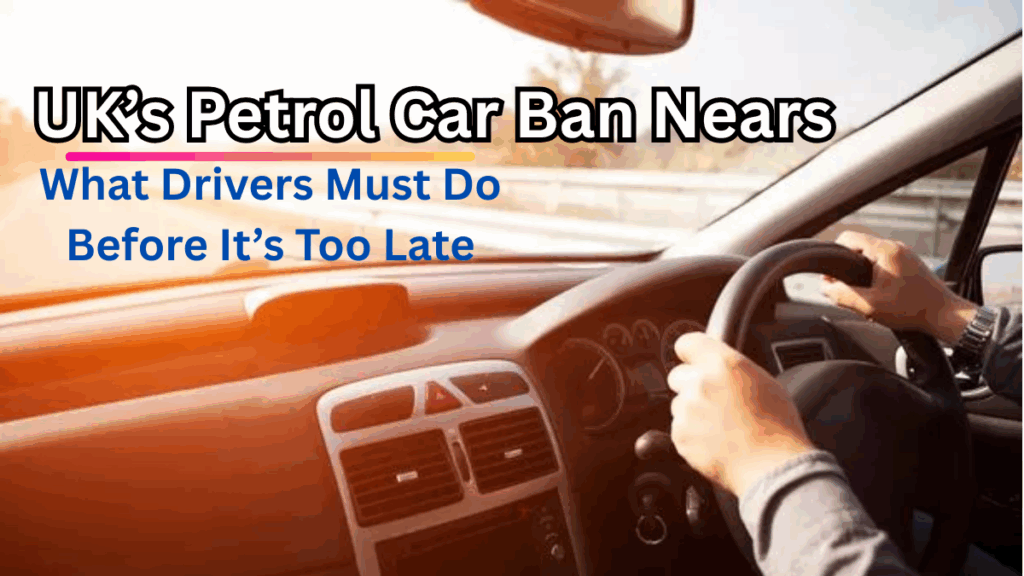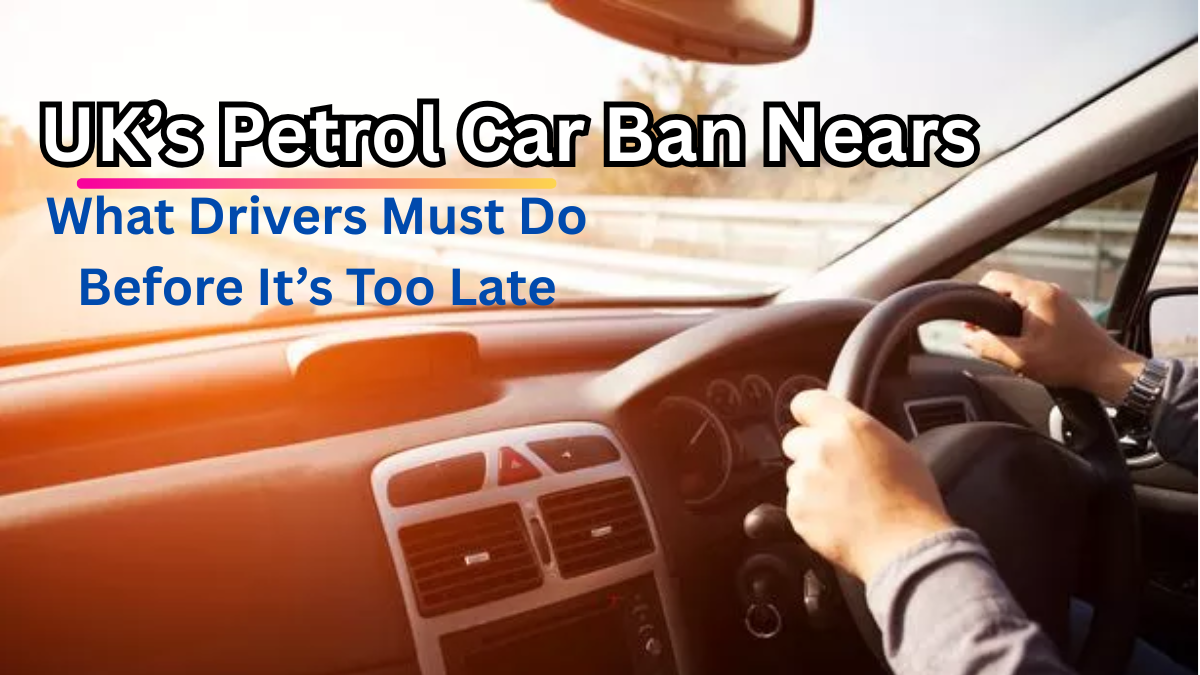The UK Petrol Car Ban Countdown is officially ticking, and with the petrol vehicle deadline UK fast approaching, millions of drivers are facing a pivotal moment. The government’s bold move to phase out new petrol and diesel car sales is part of a broader EV shift aimed at tackling climate change and promoting cleaner transportation.
If you’re a petrol car owner, this shift might feel overwhelming — but don’t worry. Here’s everything you need to know to stay ahead before the ban takes full effect.

What Is the UK Petrol Car Ban?
The UK government announced that from 2030 onwards, the sale of new petrol and diesel vehicles will be banned. This means:
-
No new petrol or diesel cars can be sold after the petrol vehicle deadline UK.
-
Drivers will need to switch to electric vehicles (EVs), hybrids, or other zero-emission alternatives.
-
This transition is a critical part of the UK’s commitment to achieving net-zero emissions by 2050.
Why Is the EV Shift Happening?
The EV shift isn’t just a fad — it’s essential for the environment and future generations. Here’s why the government and many drivers support this change:
-
Reduce Carbon Emissions: Petrol and diesel engines emit greenhouse gases that contribute heavily to global warming.
-
Cleaner Air: EVs produce zero tailpipe emissions, improving urban air quality.
-
Energy Efficiency: Electric motors are far more efficient, lowering running costs for drivers.
-
Innovation & Jobs: The EV market is creating new tech jobs and business opportunities in the UK.
What Should Drivers Do Now?
With the UK Petrol Car Ban Countdown underway, here’s what petrol car owners should consider doing before the deadline:
| Action Step | Details | Benefits |
|---|---|---|
| Assess Your Current Vehicle | Check the age, condition, and future value of your petrol car. | Decide if early replacement makes sense. |
| Explore EV Options | Research available electric or hybrid vehicles that fit your budget and lifestyle. | Access to government grants and lower running costs. |
| Plan Your Budget | Consider costs for a new EV, including possible subsidies, charging setup, and insurance. | Financial planning avoids surprises. |
| Get Familiar with Charging | Learn about home and public charging stations in your area. | Smooth transition to electric driving. |
| Stay Updated on Policies | Keep an eye on government updates regarding the ban and incentives. | Take advantage of latest support schemes. |
Understanding the Timeline
To help you visualize the petrol vehicle deadline UK, here’s a simplified timeline:
| Year | Key Event |
|---|---|
| 2024-2029 | Gradual increase in EV sales, decreasing petrol car registrations. |
| 2030 | Ban on new petrol and diesel car sales begins. |
| 2035 onwards | Further tightening on hybrid and other emissions vehicles. |
FAQs
Q1: Will I still be able to drive my petrol car after 2030?
Yes! The ban only applies to the sale of new petrol and diesel cars. Existing vehicles can still be driven and sold privately.
Q2: Are hybrids included in the ban?
From 2030, most new hybrid vehicles that produce emissions will also be banned, encouraging a complete switch to zero-emission vehicles.
Q3: What financial support is available for switching to EVs?
The UK government offers grants and incentives such as the Plug-in Car Grant, reduced road tax, and subsidies for home charging points.
Q4: How long does it take to charge an EV compared to filling petrol?
Charging times vary: a rapid charger can top up 80% battery in about 30 minutes, while home charging overnight fully recharges the vehicle.
Final Thoughts:
The UK Petrol Car Ban Countdown is more than just a deadline — it’s a chance to rethink how we drive and care for the environment. Whether you’re ready to switch to an electric vehicle now or need a bit more time, preparing ahead will save you money and stress down the road.
By acting now, you’re not just avoiding future restrictions, you’re joining a cleaner, greener movement that benefits everyone.
If you want, I can also help you explore the best EVs on the market or draft a budget plan tailored for your transition. Just let me know!
Click here to learn more
